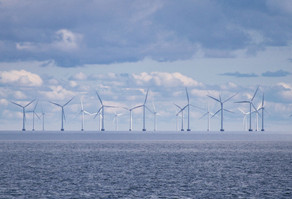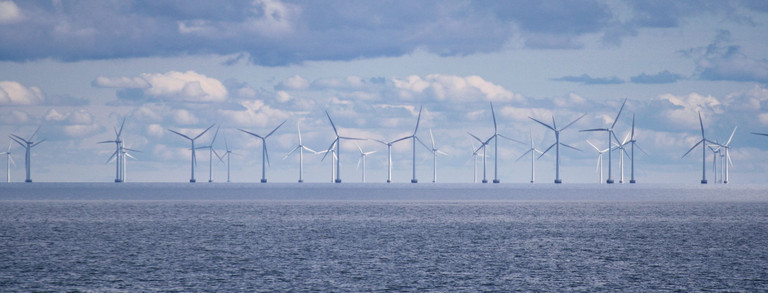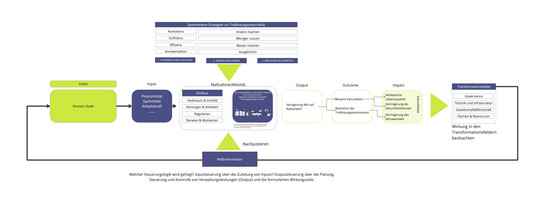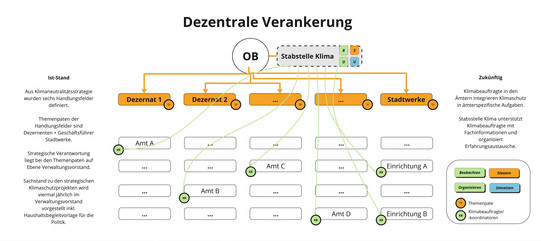Organizational models for the implementation of municipal climate neutrality strategies
Project duration
01.03.2024 - 28.02.2026
Initial situation
Over the last three years, numerous large cities in Germany in particular, as well as rural districts, have developed strategies to achieve climate neutrality on their territory.
The implementation of these climate neutrality strategies is now imminent and it is already becoming apparent that the existing administrative structures and organizational framework conditions (in particular the coordination offices for climate protection located within the city administration) are not having the required effect - which can be influenced by the municipality - both in terms of quantity (significant greenhouse gas savings in cooperation with the city community) and in terms of the number of measures that can be implemented.
- in terms of quantity (considerable greenhouse gas savings in cooperation with the municipal community, far beyond the current scope) and
- in its temporal dimension (achievement of climate neutrality in a period from 2035 to 2045 at the latest)
will be achieved.
Objectives and procedure
Using the transformative research approach, the research project aims to investigate in a practice- and application-oriented manner
- which institutional framework conditions can be used to achieve a significantly higher impact in the implementation of municipal climate neutrality strategies and
- how these should be designed in conjunction with local policy control and the tasks of the city administration (particularly in strategic management and urban development).
Based on the "simulation game" method, an accompanied process is being developed in which municipal climate protection projects can be developed in a structured workflow in terms of their objectives, implementation steps and impact monitoring in an interdisciplinary manner.
A broad spectrum of possible organizational models or other options for the implementation of municipal climate protection processes will also be examined as examples.
Project partners
- City of Aachen, Climate and Environment Department
- City of Arnsberg, Department for Sustainable Development
- City of Dortmund, Climate, Air and Noise Department
- City of Essen, Green Capital Agency
- City of Münster, Climate Department
- City of Wuppertal, Climate Protection Coordination Office





